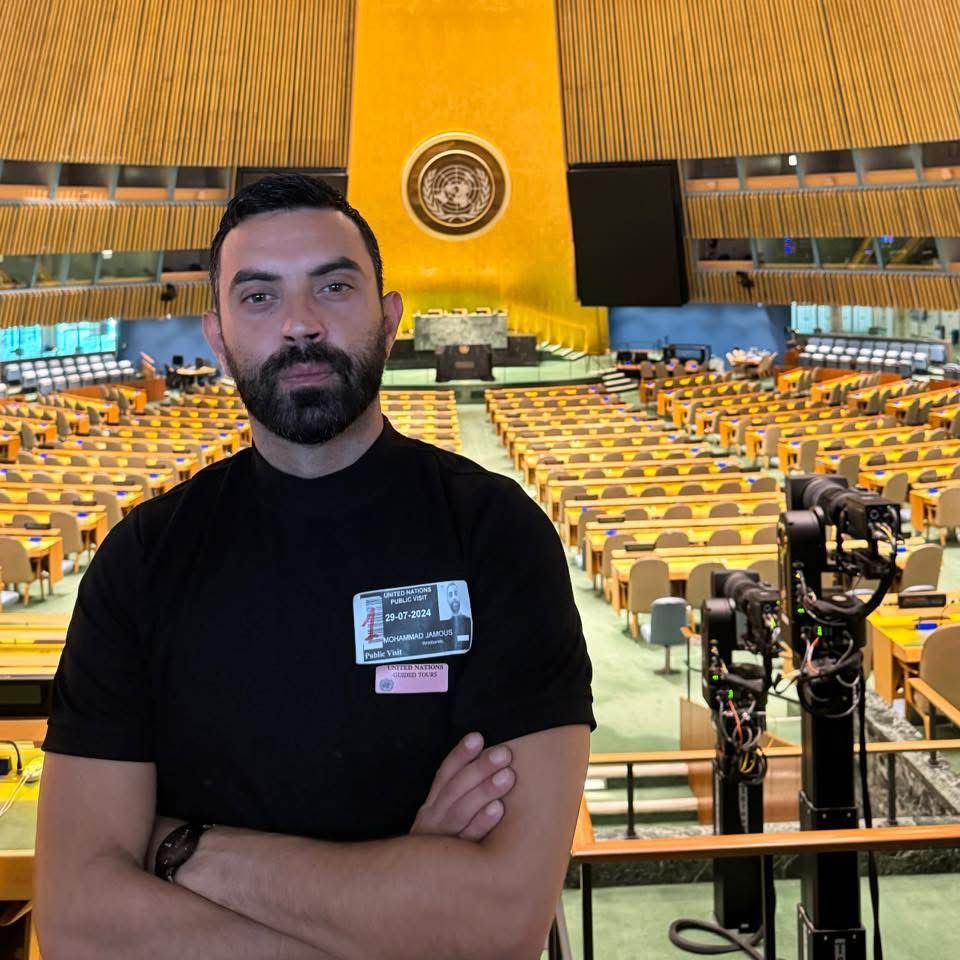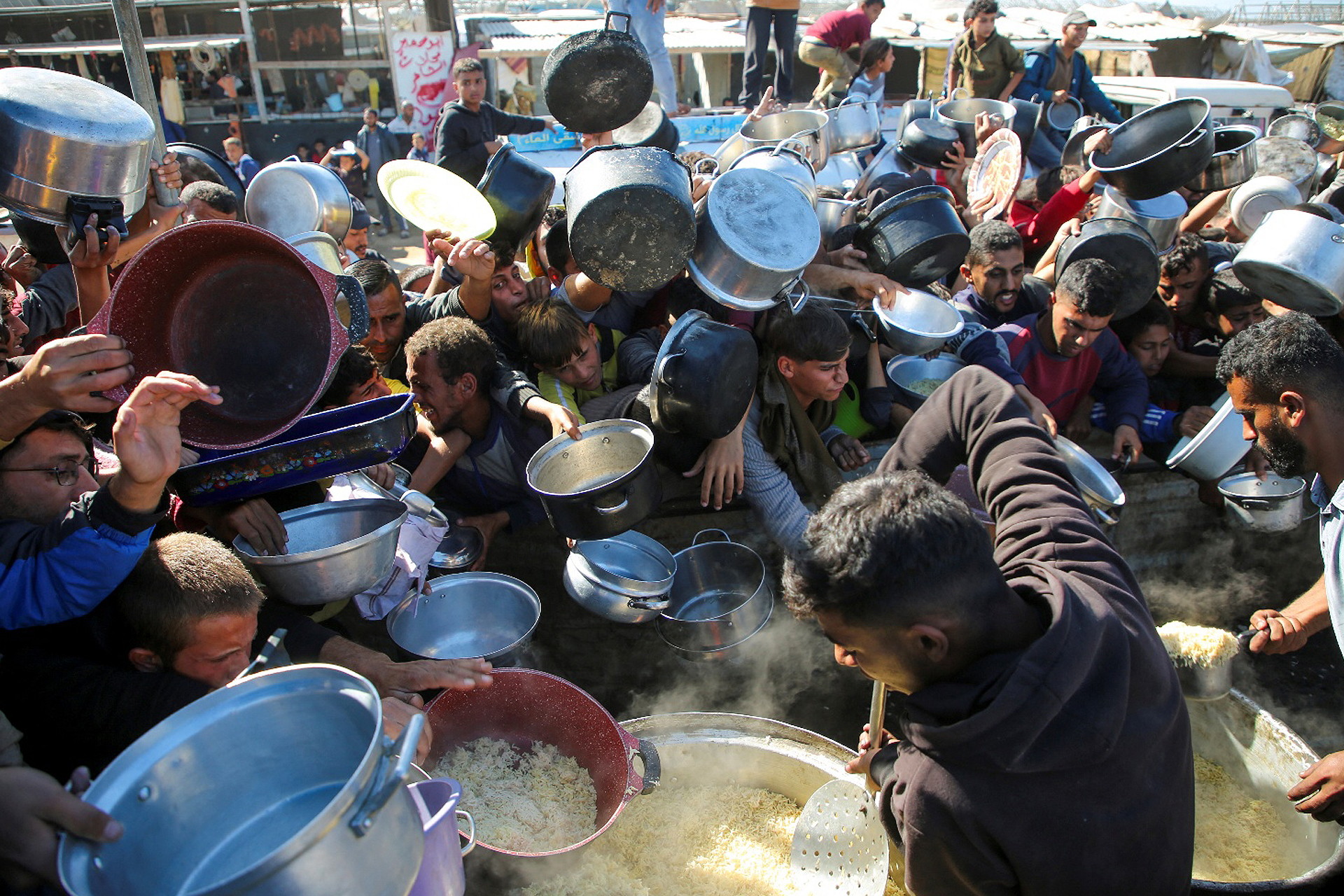I recently attended the launch of a new project at the Atlantic Council. The Realign For Palestine project is an intrepid initiative spearheaded by Ahmed Al-Khatib and moderated by the incisive Merissa Khurma. The project takes on a monumental challenge: reframing one of the world’s most intractable conflicts in a way that’s neither utopian nor fatalistic but—dare I say—realistic.
At first glance, it might be tempting to dismiss this as just another Middle East peace proposal, destined to gather dust alongside countless others. After all, attempts to broker Israeli-Palestinian peace have ended in failure time and again. The odds are stacked against success, yet some remain stubbornly hopeful.
What sets this initiative apart is its tone and substance. Realign For Palestine neither peddles lofty visions disconnected from the reality nor indulges in the zero-sum absolutism that has derailed so many past efforts. Instead, it focuses on pragmatic, incremental steps toward Palestinian self-determination and Israeli security—while directly challenging the extremists on both sides who have the most to lose from lasting peace.
Ahmed Fouad Al-Khatib, a Palestinian-American writer and advocate for nonviolent coexistence, is no stranger to the conflict’s complexities and tragedies. I first met him at the Oslo Freedom Forum, where he delivered a compelling speech on Palestinian futures and the moral imperative of rejecting extremism.
Al-Khatib grew up in Gaza City, left in 2005, and has lost 33 family members in the current Gaza war. Yet, despite this unimaginable personal toll, he remains a vocal critic of Hamas and an advocate for a two-state solution built on mutual recognition and coexistence. In a region where grief is often weaponized, his unwavering commitment to dialogue and pragmatism is striking.
As an Iraqi-American, I recognize that my stake in this conflict is indirect. Iraq’s role today is largely peripheral—its militias too dysfunctional, its politics too fractured to alter the trajectory of
Israeli-Palestinian relations. But as an American, I cannot ignore how my country’s influence continues to shape the region, often in polarizing and unpredictable ways.
That influence was central to the Realign For Palestine moderated discussion, which highlighted two critical obstacles to progress.
The first is convincing Israelis and Palestinians to embrace a shared vision of coexistence. Decades of mistrust, trauma, and zero-sum narratives have hardened into political and social norms. Many past peace initiatives have crumbled under the weight of competing maximalist demands—visions of “from the river to the sea” that are fundamentally irreconcilable, whether championed by hardliners in Ramallah, Gaza City, or Jerusalem. Yet Realign For Palestine seeks to elevate moderate voices—those calling for two states, nonviolence, and a future built on compromise rather than domination.
The second challenge is closer to home: persuading Americans. The US political discourse on this conflict has never been more fragmented. On one flank, you have hardline commentators; on the other, student movements at universities that are often accused of sympathizing with terrorism and social media only exacerbate this divide, rendering any conversation about mutual compromise almost heretical.
And yet, compromise is the only serious path forward.
The brutal reality is that neither Israel nor the Palestinians can achieve a unilateral “victory.” Israel, backed by billions of dollars in US aid and equipped with nuclear capabilities, can achieve military dominance but cannot erase Palestinian national identity. Palestinians, despite international sympathy and grassroots mobilization, cannot erase Israel’s existence.
Overlaying this deadlock is a wider geopolitical web. Despite sanctions, Iran—bolstered by oil revenues—continues to bankroll Hamas, Hezbollah, and other militias, fueling violence. Meanwhile, eager to undermine US influence, China and Russia see little incentive to push for a resolution. In this game of great-power competition, Palestinian and Israeli civilians are reduced to pawns, trapped between external ambitions and local extremism.
This is the stagnant, cynical backdrop against which Realign For Palestine dares to introduce a different narrative. As outlined in its project manifesto and launch video, the initiative is “committed to challenging violent extremism, divisive narratives, and hatred by elevating common-sense approaches and actions.” A modest yet radical mission in a climate where common sense is too often drowned out by ideological fervor.
Crucially, the initiative amplifies Palestinian voices long sidelined in Western conversations—those who reject both Hamas’s violence and the idea that endless occupation is a viable future. It also challenges the reductive binary that portrays all Israelis as militarists and all Palestinians as proponents of violent resistance. Neither caricature holds up to scrutiny, yet both dominate headlines and hashtags.
Perhaps the most refreshing aspect of the launch event was its candor—there was no sugarcoating of the immense obstacles ahead, no promises of quick fixes or overnight solutions. Instead, what emerged was a sober analysis of the grim status quo and a sliver of hope that pragmatic, grassroots activism might, over time, shift the debate toward reconciliation.
Is Realign For Palestine the silver bullet this conflict has long needed? No one can say for sure. But in a region where history is often measured in cycles of violence, any initiative that seeks to disrupt that cycle with empathy, pragmatism, and moral courage merits serious attention.
At the end of the day, falling back into the cycle of mutual destruction is always an “easy” option. But the real difficulty—and the real reward—lies in crafting a space where Palestinians and Israelis can dare to imagine a peaceful future free of war.
The opinions expressed in Realign For Palestine publications are those of the individual authors and do not necessarily represent the views of Realign for Palestine, the Atlantic Council, their staffs, or their supporters.






.JPG)



